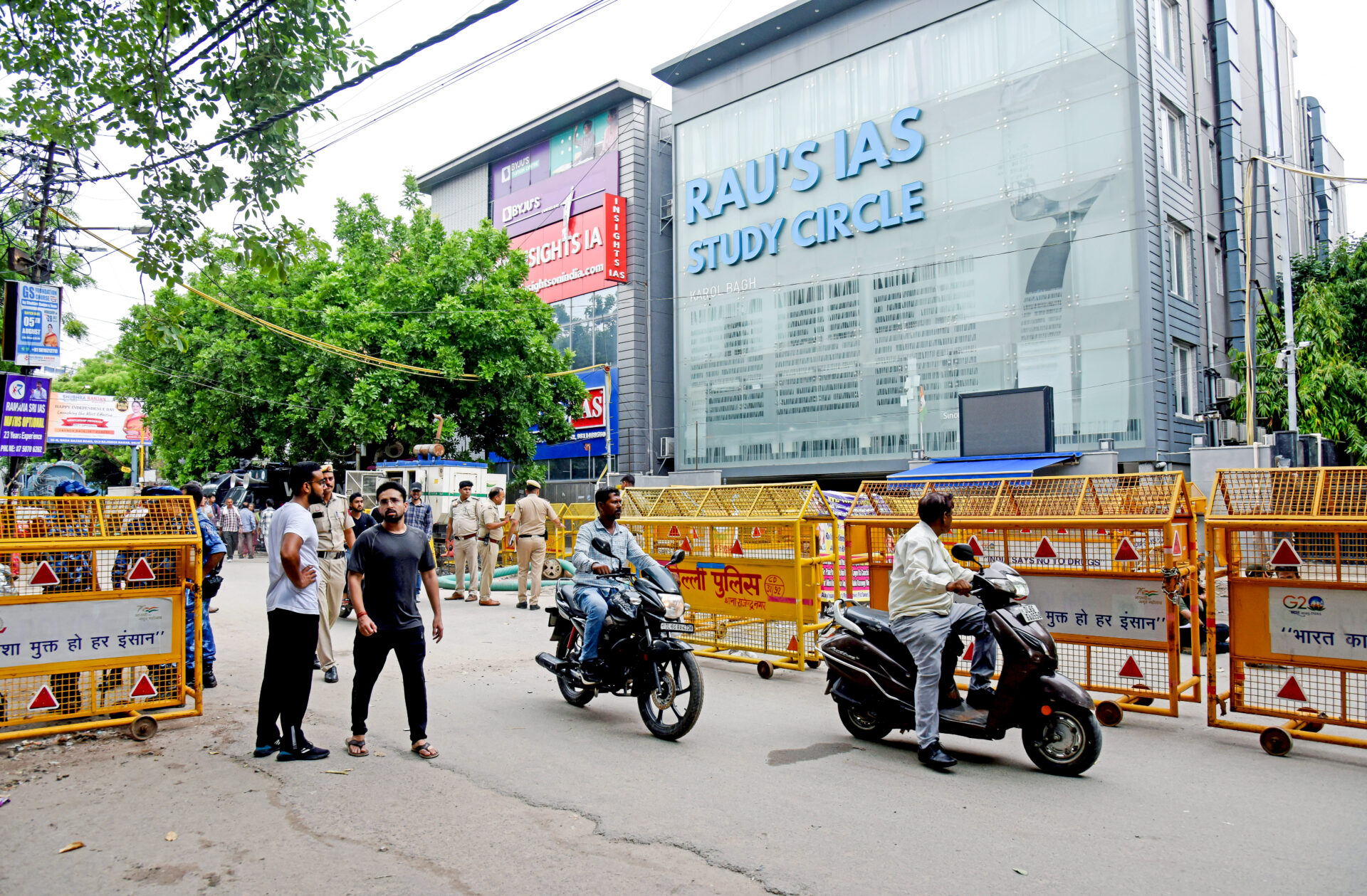NEW DELHI: UPSC aspirants from various parts of the country come to Old Rajendra Nagar in Delhi with dreams of becoming IAS-IPS officers. Tragically, some returned home in coffins, paying the ultimate price for a flawed system. Three aspirants who had the potential to bring about change, tragically lost their lives in the basement of Rau’s IAS coaching centre because of drowning caused by flooding from a moderate rainfall. This incident highlights the incompetence of the local administration, which failed to fulfil their responsibilities properly. The incident has exposed the complete collapse of urban infrastructure in Delhi, and a lack of accountability by the host of authorities tasked with ensuring the safety of millions of residents.
Incidents like this in the national capital underscore the complete failure of the central, state, and civic organisations responsible for managing Delhi. The city is governed by multiple departments across three levels: the Central government, led by the Lieutenant Governor; the state government, headed by Arvind Kejriwal’s Aam Aadmi Party (AAP); and the Municipal Corporation of Delhi (MCD), which is also under AAP’s control. Despite this, Delhi suffers from inadequate urban infrastructure, while these authorities are preoccupied with blaming each other rather than addressing the issues and improving conditions for residents in and around the national capital.
In June, a fire in neighbouring Mukherjee Nagar—another area where students flock—to jump from a building’s windows, sparking public outrage over safety issues. In response, the Delhi High Court issued a series of orders to enforce safety norms at educational institutions, but little progress has been made. Over the past month, Delhi has experienced a series of incidents, including electrocution from waterlogged roads, drowning in underpasses, multiple fires, and now the tragic event at Rau’s IAS coaching centre on 27 July. A complaint about “illegal classes being conducted in the basement” at Rau’s was filed by Kishor Singh Kushwaha from Karol Bagh on 26 June, but no action was taken, and the three lives could have been saved had the MCD responded in time.
The MCD is responsible for maintaining 90% of Delhi’s geographical area. Its structure mirrors the city’s broader governance challenges: the AAP-led deliberative wing of councillors is tasked with policy formulation, while the executive wing, responsible for implementation, is headed by a commissioner appointed by the BJP-led Central government.
Following the December 2022 elections, in which the AAP won a majority, the MCD underwent a significant change in power. Despite the merger of the three former corporations in May 2022, intended to streamline administration, the MCD remains incomplete 20 months later. Key panels such as the standing committee and ward committees for zonal supervision are still missing, leaving about 22 panels unformed. This absence creates numerous obstacles, leading to a lack of accountability and ineffective oversight of officers due to the insufficient number of committees and house discussions.
Managing Delhi’s roads, drains, and underpasses, along with regulating urban expansion, has always been a complex exercise due to the involvement of multiple departments across three levels of government. This complexity has increased in recent years, with bureaucrats in the union territory working under their respective ministries led by elected AAP legislators, but reporting to the Lieutenant Governor (LG). The ongoing conflict between the LG and the AAP government has further exacerbated the situation. Consequently, when tragedies occur, the immediate reaction from stakeholders is often to shift blame rather than address and rectify the failures.
Arun Yadav, a student from Bihar living in Old Rajendra Nagar for UPSC preparations, said that aspirants residing in the area face dire conditions. Despite numerous complaints to various authorities, no one has taken action. This has compelled them to protest against the unresponsive authorities to protect the lives of other aspirants. He added that they are demanding justice and proper action against those responsible for the deaths of the aspirants, but have yet to receive any written assurances from either the Delhi government or the lieutenant governor of Delhi.
Ramesh, an e-rickshaw driver, said that waterlogging is a frequent issue in Old Rajinder Nagar, with just one hour of rainfall resulting in water accumulating to knee depth. He mentioned that despite numerous complaints filed with the MCD over the years, no action has been taken to address the problem.
Similarly, Ram Singh, a 50-year-old hawker, said that he has observed the same problems for years. Despite changes in the administration, the situation has not improved. He also highlighted the additional hazards posed by exposed electrical wires in the area. Despite repeated complaints to local councillors and the MLA, no resolution has been achieved.
Amid this, students first of all pay lakhs of rupees to enrol themselves in the coaching centres and then pay thousands in house rents. And after all that exploitation, there is no guarantee that they will be able to return home alive.

